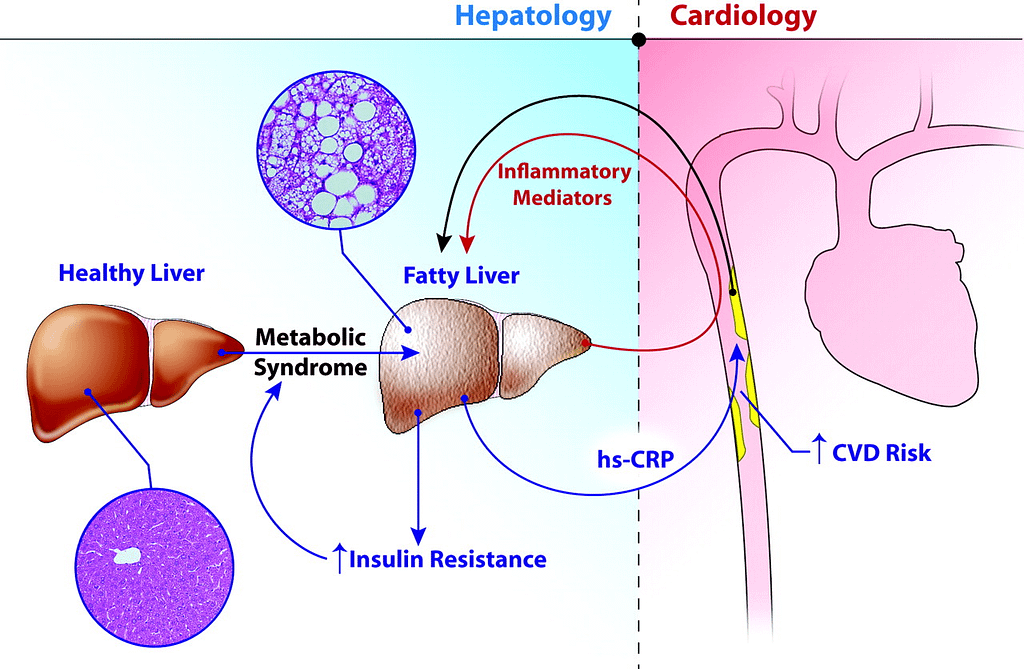Clinical significance:
Hs-CRP also termed CRP cardiac is recognized as independent predictor of increased risk of cardiovascular disease and an adjunct to the major risk factor like smoking, diabetes, dyslipidemia by American heart association.
hs-CRP was found to be a potential mediator in the association between adiposity and Fatty Liver disease3.

What is Hs-CRP?
CRP is a protein that is produced by the liver in response to inflammation. The hs-CRP test is more sensitive than the standard CRP test, which means that it can detect lower levels of CRP in the blood sensitivity is 0.10mg/L . Small increases in CRP predict the likelihood of developing cardiovascular events
Interpretation:
To reduce interindividual variability ,measurements of CRP should be performed on two separate specimens ,two weeks apart from metabolically stable individuals.
The average of two results should be used for risk assessment. If CRP is >10 mg/dl source of infection or inflammation should be investigated and treated.
Reference ranges of Hs-CRP
Normal hs-CRP levels:
- Less than 1.0 mg/L: Low risk of heart disease
- 1.0 to 3.0 mg/L: Intermediate risk of heart disease
- Greater than 3.0 mg/L: High risk of heart disease
- >10 mg/L : non cardiovascular cause should be considered.
Method: Nephelometry or Immunoturbidometry
Caution:
Testing should not be performed for at least two weeks following acute infection or inflammation resolution.
Serial analysis of Hs-CRP should not be used to monitor the effect of treatment.
The increase in Hs-CRP values are nonspecific, results should be correlated with clinical history.
References:
1. Brunzell John D, Davidson Michael, Furberg Curt D, et al. Lipoprotein Management
in Patient with Cardiometabolic Risk. A consensus statement from the American Diabetes
Association and the American College of Cardiology Foundation. Diabetes Care. Apr
2008; (31)4:811-821.
2. Executive Summary of The Third Report of the National Cholesterol Education
Program (NCEP) “Expert Panel on Detection, Evaluation and Treatment of High Blood
Cholesterol in Adults (Adult Treatment Panel III).” National Institutes of Health May
2001.
3.Xie, M.; Tang, H.; Li, F.; Wu, S.; Dong, Y.; Yang, Y.; Baker, J.S.; Ma, J. Mediating Roles of hsCRP, TNF-α and Adiponectin on the Associations between Body Fat and Fatty Liver Disease among Overweight and Obese Adults. Biology 2021, 10, 895. https://doi.org/10.3390/biology10090895.
